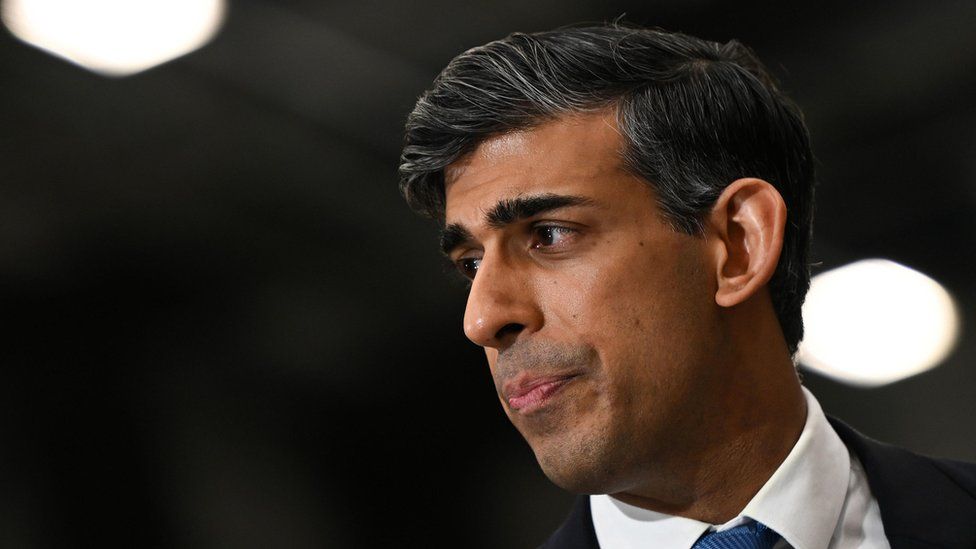ARTICLE AD BOX
 Image source, PA Media
Image source, PA Media
There is a "growing consensus that mob rule is replacing democratic rule", Prime Minister Rishi Sunak has warned.
Speaking to a roundtable of police leaders, he said we "cannot allow a pattern of increasingly violent and intimidatory behaviour" to stop elected representatives doing their job.
Mr Sunak did not spell out who he was referring to by mob rule.
But, there has been growing concern in recent months over MPs' safety since the outbreak of the war in Gaza.
Mr Sunak told police officers at the meeting in Downing Street that they needed to demonstrate to the public "that you will use the powers that you already have" during a roundtable meeting.
The government has announced a new Democratic Policing Protocol, which Mr Sunak said commits to additional patrols and provides clarity that protests at elected representatives' homes should be treated as intimidatory.
"I am going to do whatever it requires to protect our democracy and our values that we all hold dear," he said.
"That is what the public expect. It is fundamental to our democratic system. And also it is vital for maintaining public confidence in the police."
Concerns for MPs' safety came to a head last week when Commons Speaker Sir Lindsay Hoyle cited threats to politicians in his controversial handling of a debate on calls for a ceasefire in the conflict.
Mass and largely peaceful demonstrations have been taking place across the UK since the 7 October attacks on Israel by Hamas and when Israel began its military assault in response to destroy the group in Gaza.
On Wednesday, Home Secretary James Cleverly announced a £31m package to bolster protection for MPs, some of whom have spoken about being intimidated and harassed by pro-Palestinian backers.
But justice minister Mike Freer, who is standing down at the next election due to safety fears, said the extra cash would "not go to the root cause" of why people felt emboldened to target MPs.
He said unless you deal with the cause you would just have "a ring of steel around MPs" and then "our whole style of democracy changes".
Earlier this month, Conservative MP Tobias Ellwood's home was targeted by pro-Palestinian protesters, while Preet Gill, Labour MP For Birmingham Edgbaston, said death threats had become "a norm" in her job, and Conservative Stafford MP Theo Clarke said she carried a panic button directly linked to the police "at all times".
The organisers of the marches have said they will continue to protest until there is an immediate ceasefire in Gaza.
One of the groups behind the demonstrations, the Palestine Solidarity Campaign, has said it does not support protests outside MPs' homes but has defended the right to stage peaceful protests outside MPs' offices and council chambers.
The Israel-Gaza war erupted on 7 October when Hamas gunmen infiltrated southern Israel, killing about 1,200 people and taking 253 others hostage.
About 130 are still being held in Gaza.
At least 29,954 Palestinians have been killed, according to Gaza's Hamas-run health ministry.

 1 year ago
39
1 year ago
39








 English (US) ·
English (US) ·